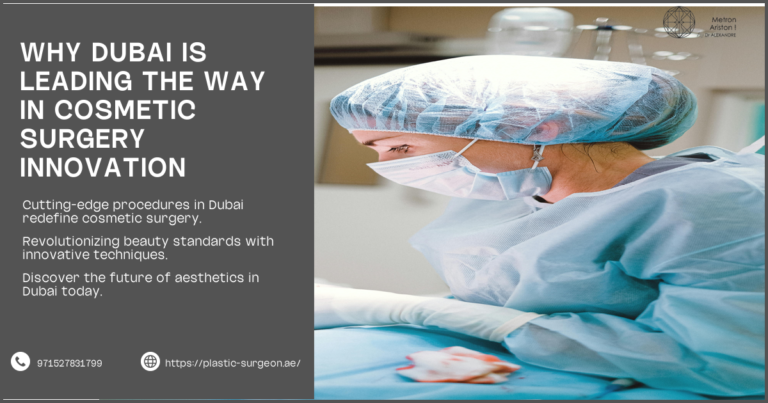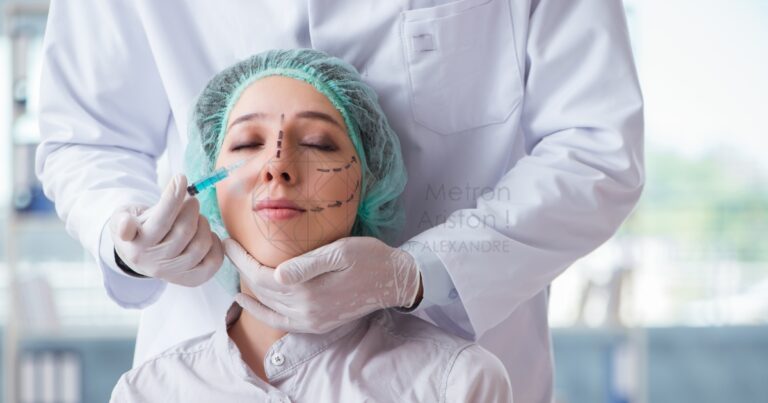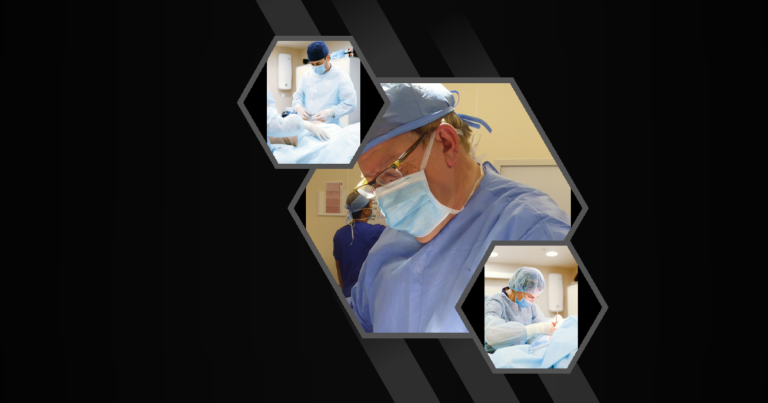Accutane and Plastic Surgery: All You Need to Know
Accutane, also known as isotretinoin, is a powerful medication primarily used to treat severe acne. While it has proven to be highly effective, its use raises questions when it comes to plastic surgery. This article delves into the relationship between Accutane and plastic surgery, providing a comprehensive guide for those considering cosmetic procedures while on this medication.
Accutane and Plastic Surgery Overview
What is Accutane (Isotretinoin)?
Accutane is a derivative of vitamin A and is used to treat severe acne that hasn’t responded to other treatments. It works by reducing the amount of oil released by oil glands in your skin, helping your skin renew itself more quickly. However, its potent effects come with significant side effects, which can impact surgical outcomes.
- Reduces oil production : Helps in controlling severe acne.
- Promotes skin renewal : Accelerates the skin’s natural healing process.
- Potential side effects : Include dry skin, increased sensitivity, and potential impact on wound healing.
Common Plastic Surgery Procedures
Plastic surgery encompasses a wide range of procedures aimed at enhancing or reconstructing parts of the body. Common procedures include rhinoplasty, facelifts, and body contouring. Each of these surgeries involves different techniques and recovery processes, which can be affected by medications like Accutane.
- Rhinoplasty : Reshaping of the nose.
- Facial rejuvenation : Includes facelifts and brow lifts.
- Body contouring : Procedures like liposuction and tummy tucks.
Potential Interactions
The interaction between Accutane and plastic surgery is a critical consideration. Accutane can affect skin healing and increase the risk of scarring, which are vital factors in surgical recovery. Understanding these interactions is essential for anyone considering surgery while on Accutane.
- Delayed healing : Accutane may slow down the skin’s ability to heal.
- Increased scarring risk : Potential for hypertrophic or keloid scars.
- Consultation necessity : Essential to discuss with healthcare providers.
Can You Undergo Plastic Surgery While Taking Accutane?
Recommended Waiting Periods
Experts generally recommend waiting for a certain period after stopping Accutane before undergoing plastic surgery. This waiting period allows the medication to clear from the body, reducing the risk of complications. The typical recommendation is to wait at least six months, but this can vary based on individual factors.
- Six-month waiting period : Commonly advised timeframe.
- Individual assessment : Tailored recommendations based on patient health.
- Consultation with a surgeon : Essential for personalized advice.
Expert Opinions
Dr. Alexandre, a renowned plastic surgeon, emphasizes the importance of waiting before surgery. “Accutane can significantly impact wound healing, so it’s crucial to allow time for the medication to leave your system before considering surgery,” he advises.
- Expert consensus : Waiting is generally recommended.
- Importance of professional guidance : Consult with experienced surgeons.
- Patient-specific considerations : Tailored advice based on individual health.
How Does Accutane Affect Wound Healing?
Impact on Skin Regeneration
Accutane affects the skin’s ability to regenerate, which is a crucial aspect of wound healing. The medication can slow down the process, leading to prolonged recovery times and potential complications.
- Slowed regeneration : Delays in skin healing.
- Potential complications : Increased risk of infection and scarring.
- Importance of monitoring : Regular follow-up with healthcare providers.
Scar Formation and Hypertrophic Scarring
One of the significant concerns with Accutane is its impact on scar formation. Patients on Accutane may experience hypertrophic scarring, where scars become raised and thickened, affecting the aesthetic outcome of surgery.
- Hypertrophic scars : Raised, thickened scars.
- Aesthetic concerns : Impact on surgical results.
- Preventive measures : Discuss with your surgeon.
Research Findings
Research indicates that Accutane can significantly impact wound healing and scar formation. Studies have shown that patients on Accutane are at a higher risk of developing hypertrophic scars, underscoring the importance of waiting before surgery.
- Increased scarring risk : Documented in clinical studies.
- Delayed healing : Supported by research findings.
- Importance of informed decisions : Based on scientific evidence.
Accutane and Specific Plastic Surgery Procedures
Rhinoplasty and Accutane
Rhinoplasty, or nose reshaping surgery, is a delicate procedure that requires optimal healing conditions. Accutane can interfere with this process, leading to complications such as prolonged swelling and scarring.
- Prolonged swelling : Delayed reduction in post-surgical swelling.
- Increased scarring risk : Potential for visible scars.
- Consultation necessity : Discuss with your surgeon.
Facial Rejuvenation Surgeries
Facial rejuvenation surgeries, including facelifts and brow lifts, can be affected by Accutane. The medication’s impact on skin elasticity and healing can alter the results of these procedures.
- Altered skin elasticity : Affects surgical outcomes.
- Delayed healing : Prolonged recovery time.
- Importance of timing : Consider waiting before surgery.
Body Contouring Procedures
Body contouring procedures, such as liposuction and tummy tucks, also require careful consideration for patients on Accutane. The medication’s effects on skin healing can impact the results and recovery of these surgeries.
- Impact on results : Potential for altered outcomes.
- Prolonged recovery : Extended healing time.
- Consultation with experts : Essential for personalized advice.
What Are the Guidelines for Discontinuing Accutane Before Surgery?
Recommended Timeframes
The recommended timeframe for discontinuing Accutane before surgery is typically six months. This period allows the medication to clear from the body, reducing the risk of complications during and after surgery.
- Six-month guideline : A commonly advised waiting period.
- Clearance from the body : Ensures safer surgical outcomes.
- Consultation with healthcare providers : Essential for personalized advice.
Factors Influencing Discontinuation
Several factors can influence the decision to discontinue Accutane before surgery. These include the patient’s overall health, the type of surgery, and the surgeon’s recommendations.
- Patient health : Individual health considerations.
- Type of surgery : Different procedures have varying requirements.
- Surgeon’s advice : Tailored recommendations based on expertise.
Monitoring and Follow-up
Regular monitoring and follow-up with healthcare providers are crucial for patients discontinuing Accutane before surgery. This ensures that any potential complications are addressed promptly.
- Regular check-ups : Essential for monitoring progress.
- Addressing complications : Early intervention for any issues.
- Collaboration with the healthcare team : Ensures optimal outcomes.
How Long After Stopping Accutane Can You Have Plastic Surgery?
General Recommendations
The general recommendation is to wait at least six months after stopping Accutane before undergoing plastic surgery. This waiting period allows the medication to clear from the body, reducing the risk of complications.
- Six-month waiting period : Commonly advised timeframe.
- Reduced complication risk : Ensures safer surgical outcomes.
- Consultation with experts : Essential for personalized advice.
Procedure-Specific Considerations
Different procedures may have specific considerations when it comes to timing after stopping Accutane. It’s essential to discuss these with your surgeon to ensure the best possible outcomes.
- Tailored advice : Based on the type of surgery.
- Surgeon’s recommendations : Personalized guidance.
- Patient-specific factors : Consider individual health and needs.
Individual Patient Factors
Individual patient factors, such as overall health and skin condition, can influence the timing of surgery after stopping Accutane. It’s crucial to consider these factors in consultation with your healthcare provider.
- Health considerations : Individual health status.
- Skin condition : Impact on surgical outcomes.
- Personalized recommendations : Based on patient needs.
Are There Any Alternatives to Accutane for Acne Treatment Before Surgery?
Topical Treatments
For those seeking alternatives to Accutane before surgery, topical treatments can be an effective option. These treatments target acne directly on the skin, reducing the risk of systemic side effects.
- Direct application : Targets acne on the skin.
- Reduced side effects : Lower risk compared to oral medications.
- Consultation with dermatologists : Essential for personalized advice.
Oral Medications
Other oral medications can also serve as alternatives to Accutane. These medications may have different side effect profiles and can be considered in consultation with a healthcare provider.
- Alternative options : Different medications are available.
- Varied side effects : Consider individual tolerance.
- Healthcare provider guidance : Essential for safe use.
Non-Invasive Procedures
Non-invasive procedures, such as laser treatments and chemical peels, can also be considered as alternatives to Accutane. These treatments can help manage acne without the systemic effects of oral medications.
- Laser treatments : Target acne without systemic effects.
- Chemical peels : Exfoliate and rejuvenate the skin.
- Consultation with specialists : Essential for personalized advice.
What Are the Risks of Combining Accutane and Plastic Surgery?
Delayed Wound Healing
Combining Accutane and plastic surgery can lead to delayed wound healing. This can prolong recovery times and increase the risk of complications.
- Prolonged recovery : Extended healing time.
- Increased complication risk : Potential for infections and scarring.
- Importance of timing : Consider waiting before surgery.
Increased Scarring
Patients on Accutane are at a higher risk of increased scarring, including hypertrophic and keloid scars. This can affect the aesthetic outcomes of plastic surgery.
- Hypertrophic scars : Raised, thickened scars.
- Keloid formation : Excessive scar tissue growth.
- Consultation with experts : Essential for personalized advice.
Potential Complications
The combination of Accutane and plastic surgery can lead to potential complications, including infections and poor wound healing. These risks highlight the importance of careful planning and consultation with healthcare providers.
- Infection risk : Increased susceptibility.
- Poor wound healing : Delayed recovery.
- Professional guidance : Essential for safe outcomes.
How Does Accutane Impact Post-Surgical Recovery?
Skin Sensitivity
Accutane can increase skin sensitivity, which can impact post-surgical recovery. Patients may experience heightened reactions to surgical procedures and post-operative care.
- Increased sensitivity : Heightened skin reactions.
- Post-operative care : Requires careful management.
- Consultation with healthcare providers : Essential for personalized advice.
Healing Time
The impact of Accutane on healing time is a significant consideration for post-surgical recovery. Patients may experience prolonged recovery periods, necessitating careful planning and management.
- Prolonged recovery : Extended healing time.
- Careful management : Essential for optimal outcomes.
- Consultation with experts : Personalized guidance.
Post-Operative Care Considerations
Post-operative care considerations are crucial for patients on Accutane. This includes managing skin sensitivity and ensuring proper wound care to minimize complications.
- Wound care : Essential for preventing complications.
- Managing sensitivity : Careful handling of the skin.
- Regular follow-up : Ensures optimal recovery.
Can You Start Accutane After Plastic Surgery?
Recommended Waiting Periods
Starting Accutane after plastic surgery requires careful consideration of the recommended waiting periods. This ensures that the surgical site has healed adequately before introducing the medication.
- Adequate healing time : Ensures safe medication use.
- Consultation with healthcare providers : Essential for personalized advice.
- Tailored recommendations : Based on individual health.
Potential Effects on Surgical Results
Starting Accutane after surgery can potentially affect the surgical results. It’s crucial to discuss these potential effects with your healthcare provider to ensure the best outcomes.
- Impact on results : Potential for altered outcomes.
- Consultation with experts : Essential for personalized advice.
- Patient-specific considerations : Tailored guidance.
Consultation with Healthcare Providers
Consultation with healthcare providers is essential when considering starting Accutane after plastic surgery. This ensures that any potential risks are addressed and managed effectively. Surgeon experience matters because doctors who have done many surgeries are better at helping patients Cosmetic enhancements popularity More people are getting beauty treatments to look better and feel more confident these days
- Professional guidance : Ensures safe medication use.
- Addressing risks : Early intervention for potential issues.
- Collaboration with the healthcare team : Ensures optimal outcomes.
What Should Patients Know About Accutane and Plastic Surgery?
Importance of Disclosure
Disclosure of Accutane use is crucial for patients considering plastic surgery. This information allows healthcare providers to make informed decisions and plan for safe surgical outcomes.
- Informed decisions : Based on complete information.
- Safe surgical planning : Ensures optimal outcomes.
- Consultation with experts : Essential for personalized advice.
Pre-Surgical Evaluations
Pre-surgical evaluations are essential for patients on Accutane. These evaluations help assess the patient’s readiness for surgery and identify any potential risks.
- Readiness assessment : Ensures safe surgical outcomes.
- Risk identification : Early intervention for potential issues.
- Collaboration with healthcare team : Ensures optimal outcomes.
Informed Decision Making
Informed decision-making is crucial for patients considering plastic surgery while on Accutane. This involves understanding the potential risks and benefits and consulting with healthcare providers for personalized advice.
- Understanding risks and benefits : Essential for informed choices.
- Consultation with experts : Personalized guidance.
- Patient-specific considerations : Tailored recommendations.
FAQs
Is it safe to have plastic surgery while on Accutane?
It is generally not recommended to have plastic surgery while on Accutane due to the increased risk of complications. Accutane can affect wound healing and increase the risk of scarring, making it essential to consult with healthcare providers before proceeding with surgery.
How long after stopping Accutane can I get a nose job?
The general recommendation is to wait at least six months after stopping Accutane before undergoing a nose job. This waiting period allows the medication to clear from the body, reducing the risk of complications and ensuring safer surgical outcomes.
Can I get a facelift if I’ve taken Accutane in the past?
Yes, you can get a facelift if you’ve taken Accutane in the past, but it’s essential to wait for the recommended period after stopping the medication. Consulting with your surgeon will provide personalized advice based on your health and surgical goals.
Does Accutane affect the results of plastic surgery?
Accutane can affect the results of plastic surgery by impacting wound healing and increasing the risk of scarring. It’s crucial to discuss these potential effects with your healthcare provider to ensure the best possible outcomes.
Are there any plastic surgery procedures compatible with Accutane use?
Most plastic surgery procedures are not recommended while on Accutane due to the increased risk of complications. It’s essential to consult with healthcare providers to determine the best course of action based on your individual health and surgical goals








